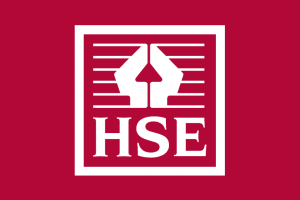City beating its Northern rivals for GVA

MANCHESTER is expected to outperform all other Northern cities in 2016 with predicted gross value added (GVA) growth of 3%.
This is according to the latest UK Region and City economic forecast released today by EY.
Only Reading and the Thames Valley are expected to report higher growth this year, with 2.5% and 2.1% GVA growth respectively.
However, the North West as a whole is not expected to report such positive figures. The region is expected to achieve just 1.2% GVA growth in 2016, compared to the national average of 2%.
Employment in the North West is expected to grow by just 0.5% this year, compared to the UK average of 1.1%.
The report forecasts that North West employment will fall over the 2016-19 period, reflecting the region’s continuing reliance on the manufacturing and public sectors, with the former projected to lose a significant number of jobs.
Bob Ward, incoming North West Senior Partner at EY, said: “There is real positive news in this report on the growth Manchester has achieved and the role it will play in the future growth of the North West region.
“It is not surprising that significant challenges remain in bridging the economic gap between the North and South, especially in a slower growing economy.
“Devolution is a clear step in the right direction. However, it is important that the North West business community continues to agitate for changes to National policy through targeted initiatives to support trade, improve infrastructure, invest in skills and support growth in key sectors such as technology.”
Manchester is bucking the regional trend and is experiencing strong employment growth in 2016. The report estimates a rise of 8,500 jobs this year, equating to growth of 2.2%, significantly outpacing both the North West (1.2%) and UK (2.0%).
Employment in Manchester is expected to grow by 0.7% over the next three years.
A number of sectors in Manchester are expected to enjoy employment growth of 1.8%, including administration and support, real estate, arts and professional services sectors. This will soften the impact of losses elsewhere, in particular from manufacturing and public administration.
Looking ahead to the 2016-19 period, although GVA growth in Manchester is expected to slow to 2%, this will still exceed North West predictions of 1.2% GVA growth over the same period.
Ward continued: “Manchester shows how targeted initiatives can drive superior growth and clearly illustrates the opportunity geographic rebalancing presents.
“However, success requires a strategy that is based around priority sectors and integrated with region and city growth plans – we’re already seeing tangible benefits from cities in the Northern Powerhouse who are working together to maximise their potential.
“We also see real opportunities for the UK around life sciences and technology in particular. The challenge is to develop and implement the right mix of policies to drive economic growth locally.”
Mark Gregory, chief economist at EY, said: “The success of Manchester is good news but it does highlight another challenge, the power of cities. Cities are becoming increasingly important as sources of economic activity.
“This is an opportunity for geographic rebalancing to an extent but also a potential issue as it risks a concentration of activity in a small number of stronger cities. Policy for rebalancing must identify how to ensure that smaller cities and the more remote parts of regions can benefit from the success of the faster growing cities. Connectivity, both physical and online, will be critical here.”







